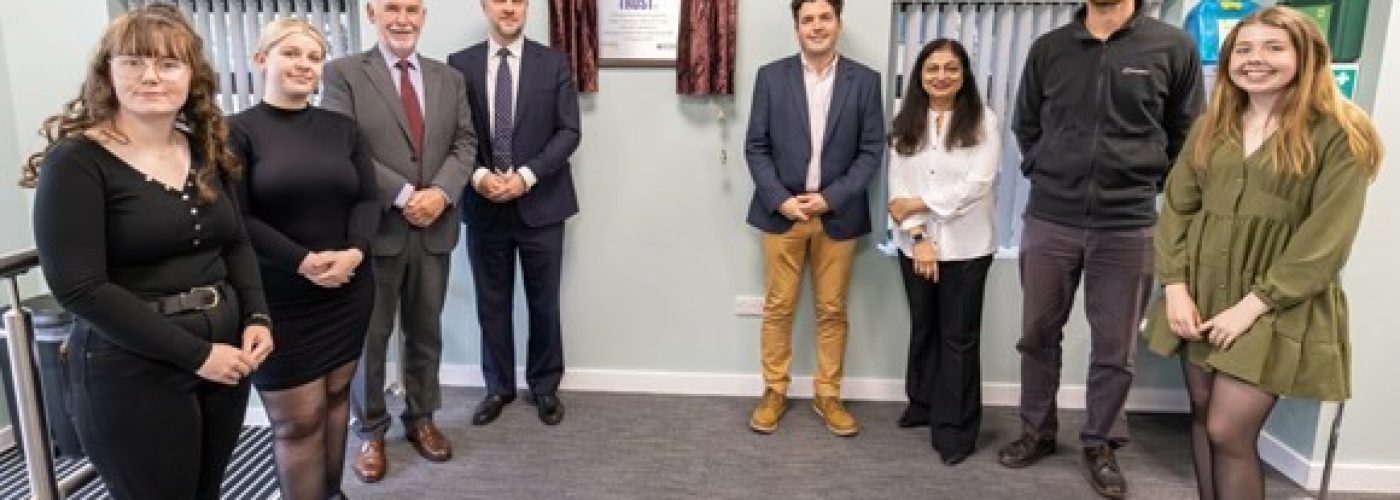The Transpennine Route Upgrade (TRU) is close to reaching the halfway mark of its ambitious aim to take on 590 apprentices across the rail upgrade between Manchester and York, via Leeds and Huddersfield.
The number of apprentices on the multi-billion-pound programme has reached 264, primarily recruited from locations along the route and amounting to £14.3 million in value to society, according to the Rail Social Value Tool.
Apprentices on TRU identify the cost of living crisis, tuition fee debt, career prospects and enhanced hands-on learning as reasons for choosing apprenticeships.
TRU, which recently secured a further £3.9 bn of governmental funding, marks the milestone during National Apprenticeship Week, taking place 5-12 February.
TRU is creating tens of thousands of jobs both directly and indirectly, including 8,000 new and safeguarded roles, with 60% of the construction workforce employed from within 25 miles of the route and 80% within 40 miles.
TRU is also set to deliver a minimum 50p value to society for every £1 spent on construction, generating £4.28 billion of social value, as outlined in the TRU Sustainability Strategy ‘Our Guiding Compass’ which was published last Summer.
Apprentices are working in various disciplines across TRU, including Civil Engineering, Project Management, Quantity Surveying and Ecology. Many TRU apprentices have university degrees built into their apprenticeships, taking one or two days a week off work to study.
Ellis Mills, TRU Project Management Apprentice based in Manchester said:
“One of the reasons I chose an apprenticeship was to pay my parents a bit of rent. We’re a family of five and it’s quite hard. There are people my age who at 18, 19, 20 want to support their parents while times are tough.”
“I have developed my communication and leadership skills and learned the art of dealing with challenging behaviours during my apprenticeship with TRU.”
“But the part I have enjoyed the most is the networking; speaking with people from across such a large project every day has allowed me to learn so much.”
Bethany Draper, TRU Commercial Apprentice based in Leeds and York said:
“I was accepted into two Russell Group universities but If I were to have gone to university, I would have been in a lot of debt.”
“Financial independence is a key part of choosing an apprenticeship. With expanded work experience in an office or site environment, you have a better start to your career than other students.”
Christopher Walker, TRU Commercial Apprentice based in Manchester said:
“Someone I know went to a good university and got a first-class honours degree in architecture, but couldn’t get a job due to a lack of experience. I didn’t want that to happen, I wanted to work in what I’ve chosen to do. That was the main deciding factor in choosing an apprenticeship for me.”
“There’s a miscomprehension that you get paid very little to be someone’s printing assistant, getting told what to do. But the truth is that companies like TRU put time and effort into developing you as an apprentice.”
Neil Holm, TRU Managing Director said:
“Providing opportunities through apprenticeships is at the heart of the TRU story. A railway fit for the North of England is being built by the communities through which TRU travels.
“Our nearly 590 apprentices are key to the TRU programme and reaching the halfway point of our ambitious apprenticeship intake underlines our commitment to developing skills and employment prospects for TRU communities.”TRU apprentices of various disciplines are available to interview across broadcast, digital and print media. Please contact alec.herron@networkrail.co.uk
Building, Design & Construction Magazine | The Choice of Industry Professionals





